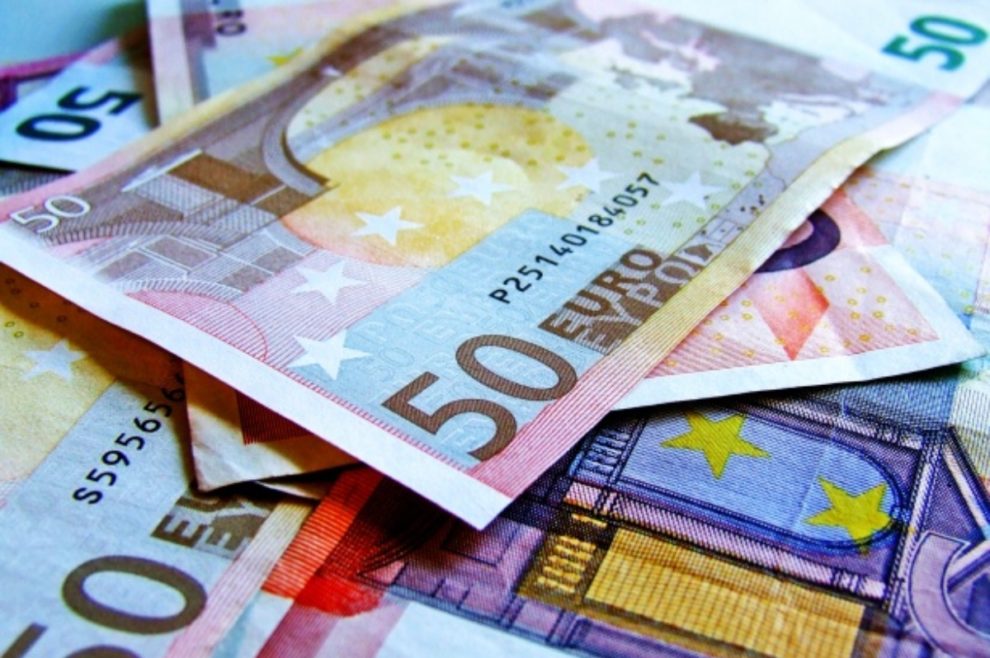Global stocks fell Wednesday and the euro dipped below $1.00 for the first time in nearly 20 years after data showed a surge in US inflation last month, convincing investors that further increases in borrowing costs are on their way.
Stock prices on Wall Street fell at the open after a pick-up in US inflation to 9.1 percent in June increased the risk of a possible recession.
European stock markets were also sharply lower by mid-afternoon, with London’s blue-chip FTSE-100 index down 0.7 percent, Frankfurt’s DAX down 1.4 percent and Paris’s CAC-40 down 1.1 percent.
The euro fell below the symbolic level of $1.00 for the first time since December 2002, dipping as low as $.0998, as the prospect of higher interest rates rendered the dollar more attractive to investors.
The economic prospects for the 19-country eurozone are also darkening as a possible halt to Russian gas supplies increases the risk of recession.
– Inflation tops 9% –
US inflation surged to a 40-year high in June on a 12-month basis, much worse than expected, US Labor Department data showed.
“The inflation reading has blown past all expectations today and there is no doubt now that the (Federal Reserve) will be even more aggressive,” said Naeem Aslam, analyst at Avatrade.
“Inflation at 9.1 pecent makes you sick as a consumer and as a central banker.”
Markets fear the reading will prompt the Fed to keep hiking interest rates aggressively after it ramped up borrowing costs by three-quarters of a percentage point last month.
Consumer prices are soaring worldwide after economies reopened from pandemic lockdowns and as the Ukraine war keeps energy prices elevated.
In a further sign of the pressure being felt around the world, the New Zealand and South Korean central banks each lifted interest rates by 0.5 percentage points Wednesday.
It was the steepest increase by Seoul since 1999.
– Europe gas crisis –
The euro briefly fell below parity to the dollar as a worsening energy crisis fans expectations for a recession in the single currency area. But the unit quickly moved back above the $1.00 mark.
With Russian energy giant Gazprom starting 10 days of maintenance Monday on its Nord Stream 1 pipeline, the bloc — and particularly gas-reliant Germany — is waiting nervously to see if the taps are turned back on.
The single currency has been hit also by the European Central Bank’s reluctance to raise rates — in contrast to monetary policy elsewhere.
“A prolonged cut to the gas supply would halt a lot of economic activity, sending (Germany) deep into recession,” said Tapas Strickland at National Australia Bank.
He said July 21 — when the gas should be switched back on — will be a crucial date.
“That date also happens to be the day of the next ECB meeting,” Strickland added.
“Either of these events are key risk events. Russia playing gas politics by not switching on the gas supply would likely see the euro lurch much lower.”
– Key figures at around 1345 GMT –
New York – Dow: DOWN 0.8 percent at 30,737.57 points
London – FTSE 100: DOWN 0.7 percent at 7,159.99
Frankfurt – DAX: DOWN 1.4 percent at 12,728.88
Paris – CAC 40: DOWN 1.1 percent at 5,978.65
EURO STOXX 50: DOWN 1.3 percent at 3,441.67
Tokyo – Nikkei 225: UP 0.5 percent at 26,478.77 (close)
Hong Kong – Hang Seng Index: DOWN 0.2 percent at 20,797.95 (close)
Shanghai – Composite: UP 0.1 percent at 3,284.29 (close)
Euro/dollar: DOWN at $1.0024 from $1.0037 Tuesday
Pound/dollar: UP at $1.1873 from $1.1889
Euro/pound: UP at 84.42 pence from 84.40 pence
Dollar/yen: UP at 137.55 yen from 136.84 yen
West Texas Intermediate: UP 0.7 percent at $96.54 per barrel
Brent North Sea crude: UP 0.2 percent at $99.71 per barrel
